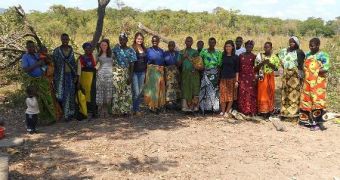Up until now, providing developing countries with modern electricity facilities was all about helping them improve on their economy and their lifestyle.
However, recent news from Tanzania inform us that introducing modern electricity there is a must, not just for economical purposes, but so that people will stop killing each other, as well.
Shocking reports made public by the Legal Human Rights Centre inform us that, up until this moment, roughly 3,000 individuals in Tanzania experienced death at the hands of their neighbors who thought they were witches.
Apparently, the main criteria for identifying a witch in this part of the world is noticing that the person has red eyes.
In order to cook meals, keep their families warm and repel disease-carrying mosquitos, most of the women in developing countries are forced to burn cow dung or even kerosene instead of firewood, a rather dirty procedure that naturally affects their eyes as methane is released in the process.
Of course, as cleantechies.com suggests, education could be an option to prevent further such murders, but setting the basis for the usage solar energy in these remote parts of Tanzania seems to be a pretty good idea as well.
Apparently, researchers and environmentalists are already working towards creating and manufacturing portable solar energy providers for these communities.
As well as this, efforts are made to help get these devices to those who need them, by developing pay-plans that suit their rather limited finances.
Thus, the Eight19 Ltd., a company founded by the members of the University of Cambridge, came up with what is known as the “pay-as-you-go” solution: those who want to use a certain amount of solar energy buy scratchcards using the money they save from not buying kerosene anymore.
Naturally, the more money they save, the more solar scratchcards they can buy, and the more solar energy they use, the less kerosene they have to buy.
From where we stand, this is a very ingenious system that will allow communities in remote parts of the world to gradually go green and thus take better care of their health.

 14 DAY TRIAL //
14 DAY TRIAL //